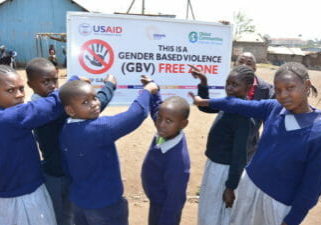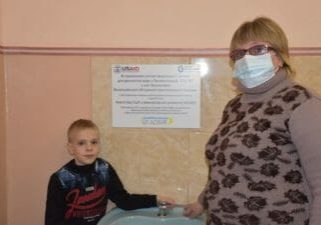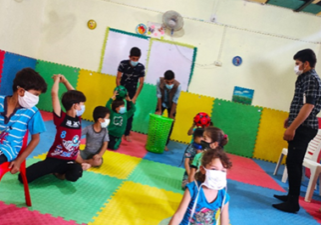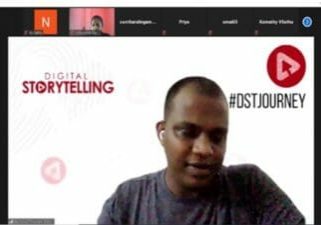News > Blog
Eman’s Resilience Sets an Example for Women in Peacebuilding in Yemen
Published 08/13/2020 by globalcommunities
Eman Mohammed, a 31-year-old Yemeni woman who is the sole breadwinner in her family, works, studies, takes care of her elderly parents and her brother who has a disability, and fulfills societal roles expected of her. Eman is one of the two female members in a nine-member Community Enhancement Committee (CEC) in Aden’s Ibn Albasir community. She plays an instrumental role in engaging female community members and ensuring that their issues are addressed in the committee.
“It was the hardest time in my life, to work, study, and take care of my elderly parents. But understanding my role as a CEC member under PACE (the Participatory Action for Community Enhancement model) and seeing how transparent the whole process was, I had to reach out to female community members because I was going through the same challenges as my community,” Eman said.
The USAID-funded Yemen Communities Stronger Together (YCST) is a three-year program that seeks build capacity in Eman’s community and others in the four Yemeni governorates of Abyan, Aden, Lahj, and Taiz. Through the PACE model, YCST seeks to empower communities to identify and address their problems. The CEC’s facilitate and engage community members to identify and implement projects that respond to communities’ basic needs and services in areas where most conflict-related damage has occurred. For example, five Community Enhancement Committees in Aden agreed to a project to rehabilitate and enhance the distribution of electricity across their communities. Al-Rabash community, however, selected improving the community’s sanitation network as its priority.
Through the program, community members collectively form and elect representatives to serve as CEC members. These committees identify community priorities in a transparent manner, restoring the trust among members of the community that has deteriorated due to the war.
Eman is a pioneer and an inspiration to many women in her community. As a member of the CEC, she reaches out to female community members to ensure that the needs of women and men are voiced and addressed in the committee. If female community members like Eman did not play such a role, then CEC might not be aware of women’s priorities. Due to cultural norms, men typically can only reach out to other male members in the community and do not connect with women to ask for their perspectives.
As Eman expressed to YCST, “When I was elected, it was really difficult to balance between my role and service to my community, and my own responsibilities. Later, I realized that the issues that affect women like lack of water and electricity, are being discussed. So, when I went out and held discussions with female youth and women in my community, they would relate to these issues. That is when I realized that I was playing a critical role of bringing female-related issues to the discussions and meetings of CECs. This would not have been possible if I was not a member. I hope that more women are inspired to take on such roles.”
Eman is one of the few people in her community who actively engages women in the reconstruction process in Dar Sa’ad district in Aden governorate, where mistrust amongst the community members is at its lowest. The conflict has strained relationships within the communities, weakening the social fabric and widening divisions among community members.
Eman is an ambassador in YCST’s Women, Peace and Security agenda where activities that enhance women’s role in decision-making, peacebuilding, and conflict resolution are supported. She plays a vital role in representing women’s priorities at the decision-making table. The PACE model is restoring confidence, bringing hope, and empowering communities to identify and address issues affecting them, thereby enhancing communities’ resilience. Eman concludes by emphasizing, “In addition to the fact that I am able to serve my community and reach out to women and female youth, this process has strengthened my own resilience as a person.”






